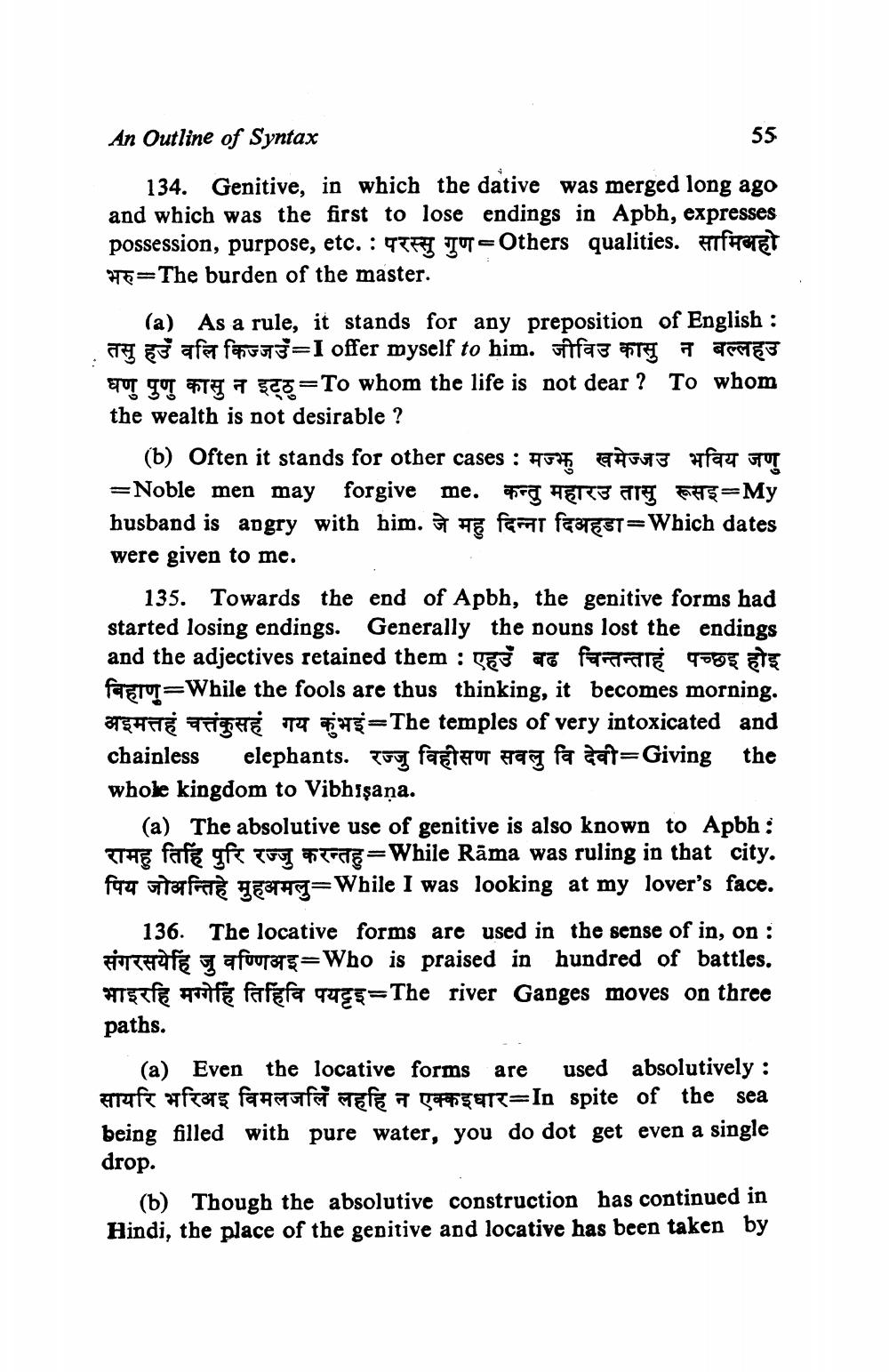________________
55
An Outline of Syntax
134. Genitive, in which the dative was merged long ago and which was the first to lose endings in Apbh, expresses possession, purpose, etc. : q7F1 TT Others qualities. IfHTET 7=The burden of the master.
(a) As a rule, it stands for any preposition of English : Tas are feug=I offer myself to him. itfa3 TL 7 DESTES ETUT TT ATT 7 ET1=To whom the life is not dear? To whom the wealth is not desirable ?
(b) Often it stands for other cases : मझु खमेज्जउ भविय जणु =Noble men may forgive me. pag HET3 ATE =My husband is angry with him. The farat FETEST=Which dates were given to me.
135. Towards the end of Apbh, the genitive forms had started losing endings. Generally the nouns lost the endings and the adjectives retained them : geš a far qogget fael=While the fools are thus thinking, it becomes morning. अइमत्तहं चत्तंकुसहं गय कुंभई=The temples of very intoxicated and chainless elephants. रज्जु विहीसण सवलु वि देवी=Giving the whole kingdom to Vibhışaņa.
(a) The absolutive use of genitive is also known to Apbh: रामहु तिहिं पुरि रज्जु करन्तहु=While Rama was ruling in that city. fou utafa ETH=While I was looking at my lover's face.
136. The locative forms are used in the sense of in, on : Firafe T afourate=Who is praised in hundred of battles. भाइरहि मग्गेहि तिहिवि पयट्टइ=The river Ganges moves on three paths.
(a) Even the locative forms are used absolutively : aruf f7373 fango TERE 7 32get=In spite of the sea being filled with pure water, you do dot get even a single drop.
(b) Though the absolutive construction has continued in Hindi, the place of the genitive and locative has been taken by




